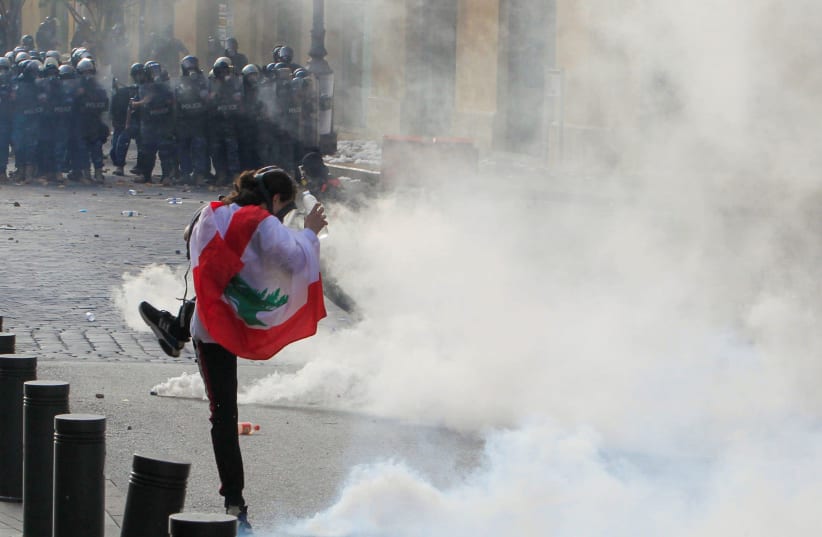General Kenneth McKenzie's visit to Beirut, a big recipient of US military aid, comes after Hezbollah stepped up criticism of US ambassador Dorothy Shea on Tuesday, accusing her of blatant interference in Lebanese affairs.
Lebanon is in throes of an acute financial crisis seen as the biggest threat to its stability since the 1975-90 civil war.
The heavily armed Hezbollah, founded by Iran's Revolutionary Guards in 1982, is classified as a terrorist group by the United States. It is also a major player in Lebanese politics and backs the government of Prime Minister Hassan Diab.
A U.S. embassy statement said McKenzie "reaffirmed the importance of preserving Lebanon’s security, stability, and sovereignty..."
Several dozen protesters, some waving Hezbollah flags, gathered at Beirut airport in a protest which the group's al-Manar TV said carried several messages against Washington.
These included a rejection of a US embassy plan to hold a memorial for 241 US service personnel killed in 1983 by a bomb attack in Beirut during McKenzie's visit, an al-Manar broadcaster said.
The US embassy statement said McKenzie's one-day visit included "a brief stop at memorials honoring the memory of those who have perished in service to their country."
The United States says Hezbollah carried out the 1983 attack, which was preceded by the bombing of the US embassy in Beirut.
Hezbollah leader Sayyed Hassan Nasrallah, in a speech on Tuesday night, said Shea had intervened in official appointments at the central bank, calling this "colonial" behavior.Shea has said the appointments were a matter for Lebanon to decide and she tried her best to convey the importance of credible and internationally respected experts being appointed.
